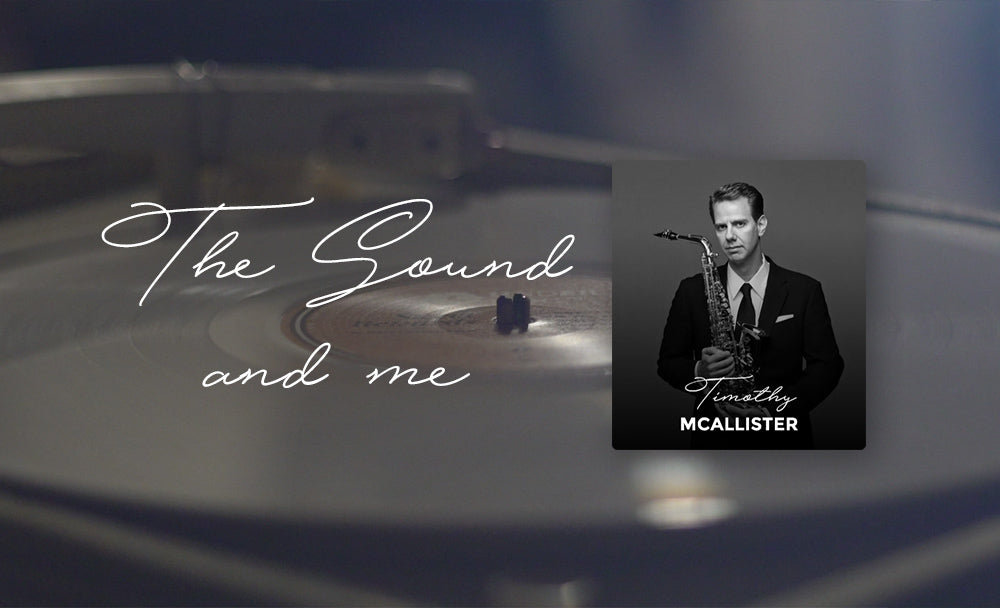The Sound and me #08 with Tim McAllister

Working with composers
« One question that can come up about sound is : what the composer's desire is ?
Of course, the notation for music, for classical Western music, the notation is almost too simple. It's not enough information. It requires a depth of understanding of that composer style or the genre, but also what they've heard, what their experiences has been with saxophone or any instrument or what with their general ideas are. One of the great advantages of working with composers is that we can truly learn what they hear, what is in their head.
We learn from their experiences and we translate that. Somewhere along the line there's a meeting where we are translating what they think, what they hear. And hopefully they're allowing for us as an artist to meet them and find our own identity with a piece of music. Sometimes a composer will say : “this is the sound I want”. “Can your sound be brighter? Can your sound be darker? Can you can you have no vibrato? Can you have more vibrato? Can you bring, you know, more intensity to the sound? Can you be thinking more about phrasing line and tension in the line?” They will guide us oftentimes because the notation is not always clear. So part of that is our training. Part of that is who we study with, who's had the opportunity to work with composers. What teachers have a life style of performing new music and contemporary music.»
A unique sound
« I think in the end, we have to still have our own path. The sound that we make is unique to every single person. There is a different sound possibility for every single musician in the world. Maybe that's one of the great gifts : we can't and we don't need to sound like every single person. We can sound completely individual as long as we operate within our tradition. And it makes sense. It makes sense on an academic level or intellectual level or an aesthetic level. It makes sense that we fit inside of this box, but we are challenged, with some repertoire or some composers, to move outside of that box. And that becomes, again, something that is impossible to script or to write down. There's no book. There's no methodology to train you for the next piece.»
Getting out of your comfort zone
« If you work with some conductors, in an orchestra, a conductor may say : “less saxophone, more blended, match the woodwind choir”, you know, “no expression, not to emotional” or “ less romantic”. And other conductors will have the opposite. They will say : “your sound needs to be much more bravura.” A conductor might demand as a professional that you move outside of your element where you are comfortable. Maybe you're not comfortable playing with more vibrato, and if you're asked to do it, it needs to be authentic and genuine and it needs to make sense.»
My sound has changed
« As we get older in the profession, our ideas shift. The more influences, the more experiences, the more life that we lead changes our sound. I think my sound changed when my daughter was born. I think my sound changed when I got married. I think my sound changed when I started teaching many, many students and then I start thinking about what more I can bring more to my instruction. I think my deep friendships with some of the greatest saxophonists in the world has changed my sound. I love this.
I think getting older, I think we start to lose our hearing. I think this changes our sound. I think as we get older, our structure, our muscular skeletal facial structure changes slightly. I think this changes our sound. If we're aware of this, I think we can adapt with different equipment, as the equipment evolve too. Mouthpieces are not the same as they were 50 years ago. Reed production is not the same as 50 years ago. The acoustic of the saxophone has improved from 20 years ago. And I think if it's a very gradual change, then as our ears change in our brain processes information, it's really amazing to see how the production of instruments and the variety and the diversity of instruments and models and brands and all of this, allows us to shift with our concept.»
Assigning an instrument to a repertoire
« I think there's an interesting question about : are we reaching a point in our profession where there is such a thing as a vintage sound, something very old ? And if we do, do we want to play an older instrument when we play music from that time ? Do we want to assign an idea of mouthpiece and style of reed or style of an instrument? Or do we want to assign this to the repertoire? Should we play Singelée on a saxophone from the late 19th century ? Should we play Jacques Ibert on a on a balanced action or a Mark VI ? Should we play only contemporary music on a on a series three?
I mean, these are interesting questions. Some people like to try this, but I think the greatest challenge is to be able to do all of it on the same instrument, on the same mouthpiece, not changing the reed and making sure that the sound comes from within. It's a production and it's a combination of embouchure, cavity, air production, and what's in your ear. It's the greatest challenge. »
► Learn more about Tim Mc Allister
► See all the episodes on our Facebook page